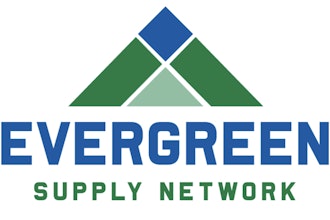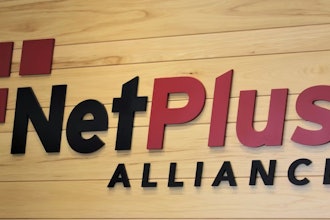
Since 2009, United Stationers has observed a significant increase in resellers leveraging cooperative purchasing agreements to reach new markets and increase sales and growth opportunities for their businesses.
Purchasing cooperatives, or co-ops, offer mutually beneficial purchasing solutions that enable resellers and potential customers an alternative and more efficient way to do business with each other. These co-op agreements have become a relevant tool for resellers to access markets they historically may not have been able to access. Oftentimes, these co-ops serve key growth verticals for resellers including the public sector and non-profit organizations across the United States.
Mark Nolan, of Nolan’s Office Supplies, also heads the PACE co-op based out of Texas. He cites the co-ops’ ability to provide a national distribution infrastructure for resellers aligned to the agreements as their main advantage. “We’ve created a solution for resellers to be competitive, grow and protect their territories and increase gross profit,” said Nolan.
Co-ops can be used to capture end-consumer business without having to go through a formal bid process, and allows other state/local entities to take advantage of co-operative solutions through a joint-powers clause. The end-user prefers this solution because not only does it avoid dedicating resources to a formal bid process, but it also avoids exposing the municipality to end-user protests or other related issues. For many resellers, this alternative is becoming one of their fastest-growing sales vehicles today.
“Co-op partnerships provide a sort of ‘hunting license’ to call on the public sector,” says Bill Jones, owner of The Office City and member of the AOPD-NCPA cooperative. “With diminishing procurement staffs at many of these organizations, I would estimate that 90% of the agencies that we have called on require a cooperative contract before they will talk to us.”
“Not only has our cooperative contract allowed us to gain a significant amount of new business,” Jones continues, “but the public sector customer is still very traditional in their business processes and thus consumes more office supplies than the typical private sector business.”
At the start of 2013, Jones’ overall co-op revenue was close to zero. Ten months later, it’s increased to 10% of his overall business and is growing month-over-month.
The key to success for resellers is being able to sell the benefits of co-ops, such as the cost savings of group purchasing with virtually no procurement issues and a ‘feel good’ buy local component for potential customers.
Co-ops continue to be a growing opportunity and United recognizes that they are a viable vehicle for resellers to leverage.
“The Interlocal Purchasing System (TIPS co-op) has really helped us in securing more business with schools and governmental offices”, said Russ Wood, owner of BizSupplies. “Before we really had nothing other than price to compete on, and with the superstores offering special pricing to the schools and government offices, we really had difficulty in approaching this market to the point we wanted.”
Today at least 60% of Woods’ business is from co-ops serving mostly private and public schools, non-profits and governmental offices.
Weighing the Pros and Cons
There are several items a reseller should consider when determining if a co-op agreement is right for them:
Most notably, it is a remarkably different sell cycle, which can require a great deal of patience and effort. That said, once a reseller does get an account on a co-op contract, they are likely to remain entrenched in that account for a long time.
Jones also states: “One potential issue arises when a reseller comes across an agency that is utilizing multiple cooperative contracts. Allowing the agency to cherry pick from multiple vendors can drive margins down, and make these accounts less appealing.”
One reseller also warns that joining a co-op is not an automatic marketing vehicle for independent resellers. Simply becoming a contract vendor with one of these groups does not mean new members will quickly come rushing through the doors. Resellers must continue to improve their marketing efforts and customer experiences both on and offline to be successful.
The major benefit to becoming a contract vendor is that members of the co-op can purchase from any of the vendors within the co-op, without going through a costly and time-consuming bid process, while ensuring they are fulfilling all of the inter-local legal requirements typically involved. In addition, these national opportunities allow resellers to expand into new regions in which they may not have previously had a sales pipeline.
United's Stance
As a company, we are excited to support new avenues of growth for resellers. We believe that co-ops are a great solution for resellers to capture market share that has historically been out of their grasp.
Although there are a growing number of new contracts available to independent resellers, they are not all created equal. Rebates, fees and restrictions vary greatly amongst the different offerings, and we encourage anyone that is considering utilizing a cooperative contract to do their homework before fully committing to one.
As long as a reseller’s core business margins remain healthy, the public sector business can add significant top-line growth with reasonable margins. Additionally, this business has a different selling cycle and strategy. Therefore, not all of a resellers existing sales reps may be good at selling to this market, but once one understands how to do it, there may be additional opportunities for sizeable growth.






















